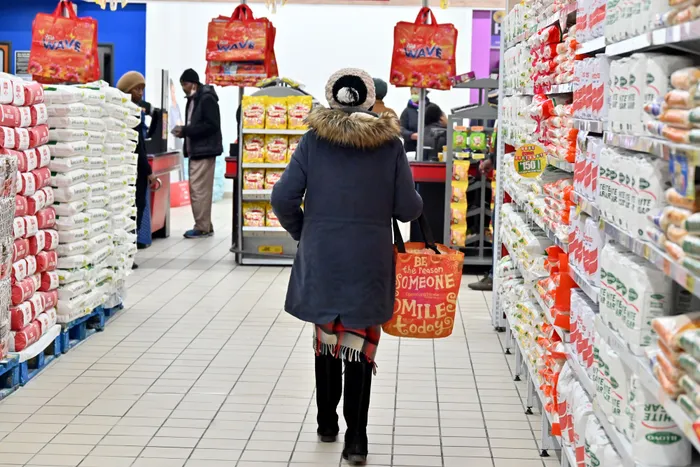
Economists have warned that rising consumer borrowing for essentials like groceries and fuel poses serious risks to household stability.
Image: Ayanda Ndamane / Independent Newspapers
Economists have warned that South Africans are falling into unsustainable debt by using credit to purchase basic necessities such as groceries, fuel, and electricity.
They say this shift is financially dangerous and structurally damaging to household stability. This follows a warning from the National Financial Ombud Scheme South Africa (NFO), which flagged a sharp rise in consumer credit defaults.
TransUnion’s Q1 2025 Industry Insights Report shows that 41.3% of non-bank personal loan accounts are now more than three months in arrears, the highest serious delinquency rate recorded in over three years. Retail instalment account defaults stand at 27.1%, clothing accounts at 25.9%, and revolving credit at 14.9%.
According to the report, uptake of these products is also increasing, with retail instalment credit up 16%, clothing credit up 7.6%, and revolving credit up 5.4%. The NFO says this simultaneous rise in borrowing and missed payments reflects mounting financial strain on households.
“These figures are not just statistics. They reflect the reality of households using credit to survive rather than to grow,” said Kwanda Vabaza, Manager of Adjudication at the NFO’s Banking and Credit Division. “When nearly half of all non-bank loan holders are behind on their payments, the system is under significant strain.”
Independent economist Professor Bonke Dumisa cautioned that consumers should avoid credit for daily expenses. “Ordinary consumers must avoid purchasing groceries or other regular household goods on credit,” he said.
He added that consumers should try to avoid having their credit liabilities above 25% of their total disposable income.
Professor Waldo Krugell, an economist at North-West University, noted that while the full scale of the problem is difficult to determine from credit bureau data alone, the pressure on consumers is evident.
“Though consumers have been spending on food, restaurants, clothing, and footwear, there is also something of a cost-of-living crisis. The inflation rate has come down, but price levels are high and salaries have been slow to catch up. In the end, many people spend on credit, essentially living above their means.”
Krugell added that the situation is likely to affect broader economic performance. “At some stage, households will have to apply some unpleasant austerity, and consumer spending as a driver of the economy will take a knock.”
While financial institutions remain stable, Krugell said profitability and share prices could decline if consumer defaults rise. He also flagged low levels of financial literacy as a key concern.
“Current regulations and checks are quite good, but there is a big deficit in consumer financial literacy. Most of us know too little about managing our finances well.”
The NFO has also raised concerns about reckless lending and urged consumers to lodge complaints with it if they were granted unaffordable loans.
Related Topics:
